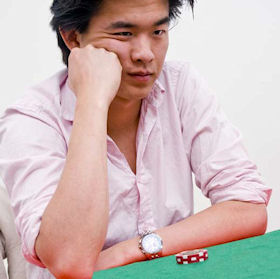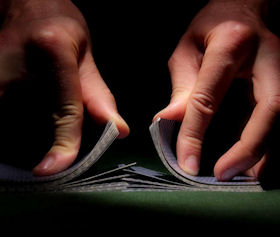This article first appeared in the Nov/Dec 2011 issue of World Gaming magazine.
It is fascinating to study what makes someone a champion. In sport, champions are usually those who have the right physical attributes, natural talent and dogmatic drive, coupled with the mental capacity and discipline to put it all together. It’s a tall order for most mere mortals, which is why the word ‘champion’ only ever applies to a select group of people.
Poker is very similar to sport. Obviously poker doesn’t require the same physical attributes, but all the other ingredients are vital for long-term success on the felt. Just as with sport, only a handful of poker players will ever be considered ‘champions’.

Some nights just nothing goes right
Let’s talk about cash poker play specifically as tournament play requires a totally different mind and skill set. In cash poker the most important thing you have to learn is how to lose. You may ask, “isn’t the point of poker to win money, not lose?” Yes it is. But have you ever heard of the expression “a dollar saved is a dollar earned”? Whichever way you look at it, a dollar is still a dollar regardless of whether you won it, or you saved yourself from losing it.
There are those rare occasions where everything goes your way and money seems to fall in your lap. You sit there holding the nuts and other players are moving all in on you. Or you’re a card rack, smashing every flop. Poker doesn’t get any better than this, but those times are rare.
Where your skill in poker is really tested is when things are going badly. This is when frustration leads the average poker player down the path of destruction. On nights like these you will often go in with the best hand and get mercilessly run down. When you are eventually dealt a good hand, you will run into a monster. These are the defining nights where good players stand out from the bad. Any idiot can win graciously; it’s how players handle losing that sorts out the men from the boys (or the ladies from the girls).
Every winning poker player either consciously or subconsciously has a game plan. If poker is a hobby then your imperative is to play. If poker is your profession you have your living to consider. The secret to being a good poker player is to set guidelines and rules that work for you in order to take advantage when things are going your way, and lose the least when they are not. It may be limiting the amount you lose on any given session, only playing for a set amount of time, not playing when you are tired or drinking, or only playing when the games are juicy and ripe for the picking. These are examples of boundaries that disciplined players create to stay long-term winners.

Shuffle harder!
Here’s a very simple lesson that will help you start to improve your long-term results. Maximise your winning days and limit the damage when the cards aren’t falling your way. No poker player wins all the time, even champions.







